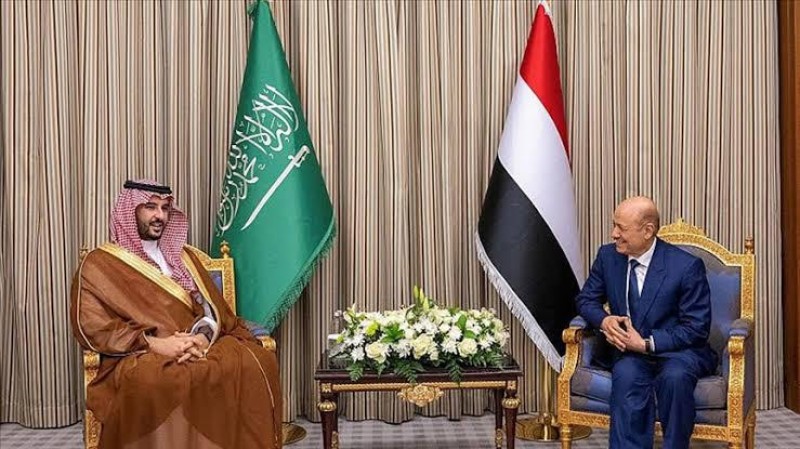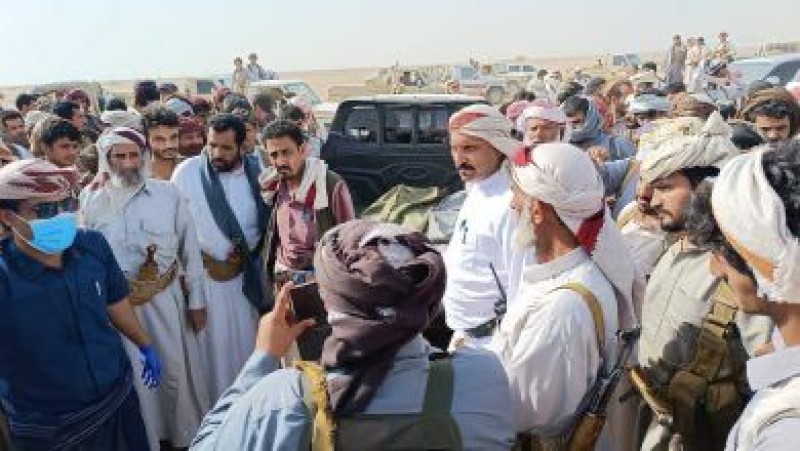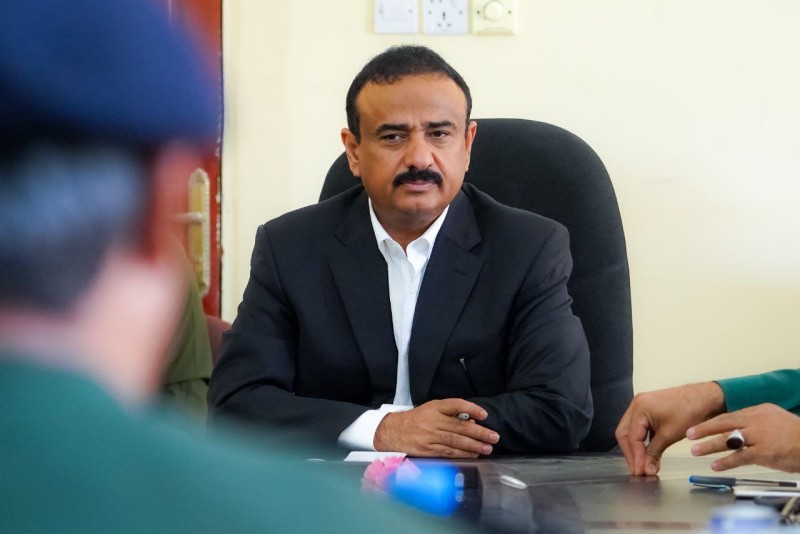6 Yemeni soldiers Killed By Houthis in nationwide attacks


At least six Yemeni government troops and an unknown number of Houthis were killed in heavy clashes and exchanges of fire across the country over the past 24 hours, local military and government officials said on Saturday.
Fighting in the country has intensified as the international community tries to persuade the Iran-backed Houthis to renew the UN-brokered truce that expired last week.
Local military officials said that the Houthis launched coordination heavy shelling and troop attacks on government forces in the southern province of Lahj, outside the city of Taiz, and in areas south of the central city of Marib.
In Lahj, Mohammed Al-Naqeeb, a spokesman for the pro-independence Southern Transitional Council, which controls the province, said the Houthis launched a ground attack on Friday after shelling their forces in Yafa’s Had, killing four soldiers and injuring at least seven in an apparent attempt to advance into the mountainous district.
“Our forces drove them back. Many Houthis were killed or injured in the attack,” Al-Naqeeb told Arab News, adding that sporadic fighting and exchanges of fire erupted on Saturday after the Houthis retreated after failing to make ground gains.
Other Houthi forces launched a barrage of explosive-rigged drones, mortar shells, and canon shells on government troops defending the besieged city of Taiz on Friday evening, killing two soldiers and injuring many more.
Military officer Abdul Basit Al-Baher told Arab News by telephone that the Houthis attacked government soldiers with various heavy weapons first in Al-Shaqab, southeast of Taiz, and in Al-Aresh, east of Taiz, before proceeding toward their positions outside the city.
Al-Baher said that the latest Houthi shelling was the most intense since the truce’s end, with the Houthis heavily and simultaneously bombarding government troops in Taiz. “They rained down mortar rounds and heavy machine guns on our troops,” Al-Baher said.
At the same time, Yemen’s army shot down on Friday two explosive-rigged drones fired by the Houthis at government troops outside Marib, where soldiers were also engaged in sporadic fighting and exchanging mortar and heavy machine-gun fire with the Houthis.
The Houthis increased their attacks on government forces in Taiz, Lahj, Marib, and Hodeidah just hours after the UN-brokered truce expired on Oct. 2.
Casualties have substantially decreased since April 2, when the truce came into effect, and commercial flights have been allowed to depart from Houthi-controlled Sanaa, as well as more than 50 fuel ships docking at Hodeidah.
The Houthis refused to lift their siege of Taiz and also to extend the ceasefire until the internationally recognized government pays public employees in areas under their control.
According to the most recent version of a proposal offered to warring parties by UN Yemen envoy Hans Grundberg, the Houthis should pay public employees in their areas using revenue from fuel ships entering Hodeidah, with the Yemeni government covering any shortfall.
The international community, including the UN Security Council, has chastized the Houthis for making complicated demands in order to thwart efforts to renew the truce and end the war.

Riyadh – A senior official in Yemen’s Presidential Leadership Council said that Council President Rashad Al-Alimi is expected to meet e…

Marib – The internationally recognized government of Yemen has recovered the bodies of 20 of its fighters in a tribal-mediated exchange with…

Shabwa – The Governor of Shabwa, Awad Mohammed bin Al-Wazir, has directed the Director General of Police in the governorate to urgently take…